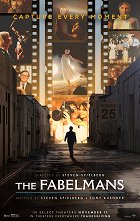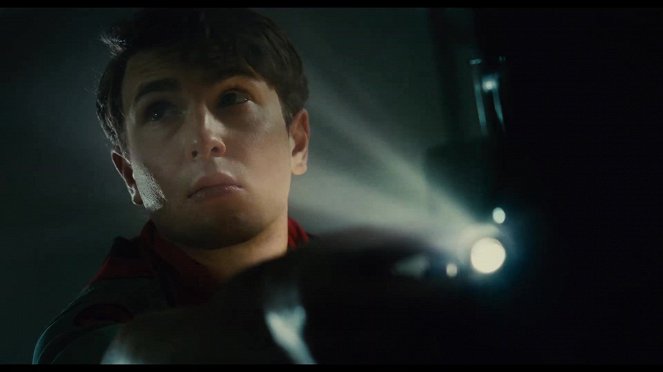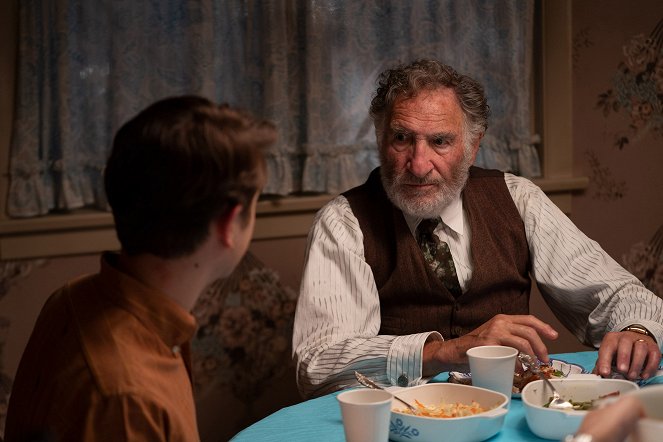Directed by:
Steven SpielbergCinematography:
Janusz KaminskiComposer:
John WilliamsCast:
Gabriel LaBelle, Michelle Williams, Paul Dano, Seth Rogen, Mateo Zoryon Francis-DeFord, Keeley Karsten, Alina Brace, Julia Butters, Birdie Borria (more)VOD (5)
Plots(1)
A deeply personal portrait of 20th Century American childhood, Steven Spielberg’s The Fabelmans is a coming-of-age story about a young man’s discovery of a shattering family secret and an exploration of the power of movies to help us see the truth about each other and ourselves. (Universal Pictures US)
Videos (12)
Reviews (9)
Full Steven Spielberg. Without metaphor for the first time, he looks back on his childhood, on the family background that shaped him and (thankfully) gave him to us. Not that the proverbial perfectionist didn't pay attention to his previous films, but this time it's a truly admirable piece of watchmaking that may not even look like it. Spielberg firstly conveys the viewer's fascination with cinema, wrapping them around his finger with his boyish excitement of a train wreck reenactment, and then making them an invisible member of the family, letting them experience everything he himself has experienced with the characters. And he does it so naturally, confidently and beautifully that it's clear why he made the film. Had someone else been behind the camera, The Fabelmans would have been either a cheesy ode to the best director of all time or a cold family drama that would have been hard to watch. But to find a balance between these two extremes, none other than Steven Spielberg could have done it. PS: And the actors!
()
I managed to watch The Fabelmans twice over the weekend and the second time in particular I experienced feelings I no longer associate with modern films. This two-and-a-half-hour chronicle of a famous filmmaker's difficult formative childhood in a crumbling family is the most beautiful film I've seen in a long time, and it offers narrative techniques so subtle and yet often utterly unobtrusive that a generation of young directors could learn again in the cinema. The story of an aspiring filmmaker and a bitter divorce is based on the alternation of artistic and rational perspectives. The camera reveals things to the protagonist that the human eye never sees in real life (including his mother's infidelity in the background of the action), and the photographic form of the footage, which can be manipulated in various ways in the editing room, makes the films the most reliable source of existence, something that you can control and can give authorial forms of representation. In the end, Sammy, distressed by his family situation, uses this to glorify the school bully in a school video, thus bringing his rival to his knees – realizing that he will never look as good in real life as he does in the film. Life can be grey and Spielberg knew the bitterness of anti-Semitism, bullying, failure with girls and, most importantly, the divorce of his parents, only one of whom supported his passion for movies. The Fabelmans represent two worldviews that must intertwine, but the more painful one must never suffocate what fulfills us most and what we aspire to. It is an emotional and psychologically detailed family study in which cinema serves not just to escape, but to clarify and filter emotions. Most of Spielberg's films about the complexity of an incomplete family have managed to suck us in, but The Fabelmans is a film through which we can inhale and, despite the sad passages, absorb the joy of the narrative and its impulses. After the second screening, I curled up on the bus for half an hour, put the John Williams soundtrack on my headphones, and let myself be swept away by what Sammy's story revealed. I too can try to be an extrovert and clamor for someone's attention, but I know in my soul that I embrace my introvert bubble and get lost in movies where I don't have to deal with interpersonal relationships, where I don't quite excel at. And what brings me joy is being able to analyse the work with space, the movement of the camera and the positioning of the characters around the set, which in The Fabelmans is again beautiful and original. Steven Spielberg has made an amazing film that spoke to me in every scene and I can say that it opened my eyes again. If you've yet to see a single film this year (so far), make sure it's this one, Avatar is going to have to try hard.
()
Grand shots of intimate life struggles and little scenes in which the most important things happen. Steven Spielberg has perhaps never built his classic family backdrops so high, illuminated with all manner of imaginary spotlights, and focused his attention solely on them. What's more, Janusz Kamiński's playful camera loves the landscape, architecture, and people so sincerely that The Fabelmans speaks to me in a much more optimistic language than you would expect from the story and some of its twists.
()
Sammy Fabelman loves cinema. Together with his friends and family he makes small amateur films and dreams of becoming a director. But then, through his hobby, he uncovers a nasty secret from his loved ones that makes him rethink everything he's ever known. Steven Spielberg delivers a semi-autobiographical story that is moving, funny and above all believable. And while it's also nostalgic and melancholy, it never feels cloying. An honest and audience-friendly drama from a storyteller who understands his job damn well.
()
An exquisite reminiscence of the childhood and adolescence of an ordinary middle-class family. Spielberg manages to conjure up smiles and tears, joy and sadness with an ease all his own, reminiscing a little of his childhood years when his enthusiasm for moving pictures seemed to be his everything, despite his family's complicated relationship. There's a bit of a problem with pacing and overlong running time, but that's all due to the consistent storytelling and coloring of the characters. The last scene is the best.
()



Ads